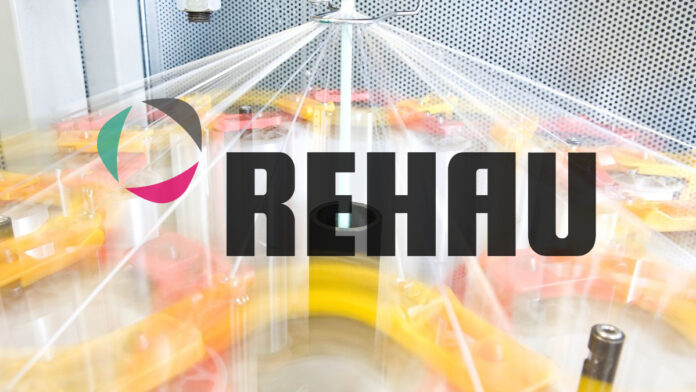Polymer manufacturer REHAU Industries, which makes plastic seals and componentry for doors and windows, is set to roll-out an industrial AI inspection tool from Fujitsu on its production lines in Germany following successful field trials. The new AI solution, based on unspecified “smart technologies”, replaces visual quality inspections, and roots-out 99 percent of product defects, the company has said. The implication is it uses machine-vision camera technology, and works on private 5G networks, as required. The pilot is to be transferred into a full production system, said REHAU; further use cases will be added as well.
REHAU Industries, part of REHAU Group, is based in Rehau in Upper Franconia. It sells synthetic polymer products for the automotive, construction, furniture, materials, medical and industrial sectors, typically used for componentry in windows and interior fittings, and cooling and fluid solutions. Fujitsu was drafted-in to work on an automated quality control system for production of plastic ‘extrusion profiles’ (continuous shapes created by a process of extrusion), where quality assurance is a challenge because of the range of products and the demand for “perfect surface”.
A statement explained: “REHAU produces more than 200,000 different versions of these in various colours, patterns, and designs in multiple factories worldwide. The profiles are manufactured using the extrusion process on large machines and wound into coils at the end of the line… Visual inspection by line workers [has until now] presented a number of challenges, including the fact that quality of goods being manufactured could only be checked at the beginning or end of a bundle, or by taking samples during production.”
It went on: “Despite high process stability and process control, this presented an ongoing risk of undetected errors and quality control issues. To address these challenges, Fujitsu delivered a new quality control system to streamline this process in pilot operations, during which it successfully detected over 99 percent of all defects on a test data set (99.32 percent). The integrated AI was trained using images of the manufactured profiles in optimum condition, which allows the system to reliably detect all kinds of defects during the manufacturing process.”
Fujitsu said it is using machine learning to document errors and improve fault detection. “Potential defects and anomalies can be anticipated on the basis of the knowledge gained and thus avoided,” it said. The pair said the co-creation process between the two companies was effective and the development was rapid. A fully automated visual inspection solution is to be deployed across production of all of REHAU’s extrusion profiles. The Japanese firm will show the solution alongside a bunch of parallel tech at Hannover Messe in Germany at the end of April.
Niels Strohkirch, member of the management at Fujitsu Germany, said: “Quality management is increasingly important to customers. As anyone experienced with manufacturing processes can tell you, even small production errors can have a major impact down the line, especially when you’re trying to optimize the use of materials. With our AI solution, we’re demonstrating how experienced workers wielding smart technologies can achieve better results in areas where human manual or visual inspection alone has been the norm.”
Tobias Lehner, smart technologies engineer at REHAU, said: “With the new quality control solution, we will be able to take product quality to a new level, reducing the risk of complaints and waste. This contributes to both cost reduction and overall, more sustainable production. As the next step, we now plan to transfer the pilot into a productive system – and ideally explore further use cases.”

